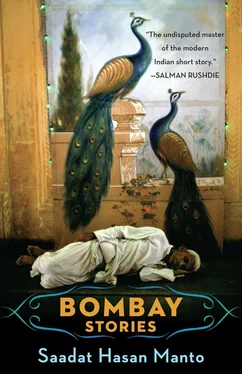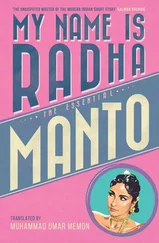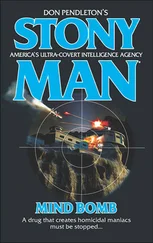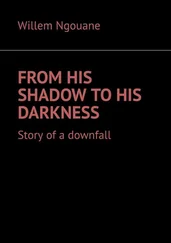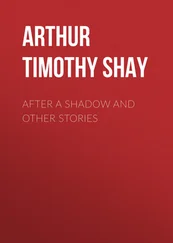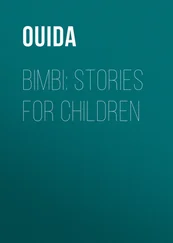I didn’t know what to say. The quinine injection had given rise to a buzzing sensation in my ears. Moreover, I was so overwhelmed by his kindness that it was hard to express my gratitude. I could only say, ‘Mammad Bhai, may God look after you! Take care!’
Mammad Bhai pushed his moustache up a little and left.
Dr Pinto came by every morning and evening, and each time I mentioned the money, he put his hands over his ears and said, ‘No, Mr Manto! It’s Mammad Bhai’s business. I can’t take a single coin.’
I thought Mammad Bhai was incredible. I mean he was so intimidating that stingy Dr Pinto paid for the injections himself.
Mammad Bhai came to see me every day, either in the morning or the evening, and he would bring with him six or seven apprentices. He reassured me that it was an ordinary case of malaria, ‘God willing, Dr Pinto’s treatment will get you feeling right in no time.’
I was completely cured within fifteen days, and during my convalescence I learned everything about Mammad Bhai.
He must have been in his late twenties. He was very skinny and had surprisingly nimble hands. I heard from the people in Arab Alley that he could throw a pocketknife straight through a man’s heart. And as I said earlier, he was an expert wielder of knives, clubs, and swords. Countless famous stories circulated about how he had committed hundreds of murders, and yet I am still not ready to believe this.
Nonetheless, I shivered in fright at the thought of his dagger. Why did he always keep this deadly weapon tucked unsheathed inside his waistband?
After my health recovered, we ran into each other in one of Arab Alley’s run-down Chinese restaurants. He was trimming his fingernails with his dagger.
I asked him, ‘Mammad Bhai, these days it’s all about guns and pistols. Why do you still use a dagger?’
He adjusted his moustache. ‘Vamato Bhai, I don’t get any pleasure from guns. Even a child can use one. You squeeze the trigger and “bang!” What fun is there in that? This thing — this dagger — this knife — this pocketknife — there’s pleasure in it, you know? Sure as hell there is! And it’s that — what do you call it? — yeah — art. There’s an art in it, okay? If you don’t know how to use a dagger or a knife, you’re nothing. A pistol’s just a toy — a toy that can kill. But there’s no enjoyment in it. Look at this dagger, look at its sharp blade.’ He wet his thumb and ran it along the blade. ‘With this, there’s no bang at all. You can thrust it into someone’s stomach just like this. It’s so smooth that the bastard won’t even know what’s going on. Guns and pistols are nonsense.’
I fell into the habit of seeing Mammad Bhai every day. I felt obliged to him for what he had done for me, and yet whenever I tried to express my gratitude he would get angry and say, ‘I didn’t do you any favour. It was my duty.’
The neighbourhood was his. He looked after the people who lived there, and if someone was sick or having problems, Mammad Bhai would pay them a visit. His agents kept him constantly informed.
He was a gangster and such a dangerous criminal, and yet with God as my witness I still can’t figure out what made him intimidating. That is, other than his moustache. Its every hair stood upright like the quills on a porcupine’s back. Someone told me he greased it every day. When eating, he would dip his fingers into the food’s gravy and then massage it, as ancient wisdom says that oil strengthens hair. His moustache gave him his name — that or maybe his dagger, secured in his shalwar’s waistband.
We became good friends. Although he was illiterate, he treated me with so much respect that the rest of Arab Alley got jealous. One early morning on my way to the office, I overheard a man in a Chinese restaurant saying that Mammad Bhai had been arrested. This surprised me because he was friendly with all the area’s police.
I asked the man why. He told me that a woman named Shirin Bai lived in Arab Alley and her young daughter had been raped the previous day. Shirin Bai had gone to Mammad Bhai and said, ‘You’re our protector. Some man did this horrible thing to my daughter. Damn you that you’re still at home doing nothing!’ Mammad Bhai unleashed a fierce insult at the old woman and then said, ‘What do you want me to do?’ Shirin Bai answered, ‘I want you to slice the bastard’s stomach open.’
Mammad Bhai had been at a restaurant eating dinner. When Shirin Bai stopped talking, he took out his dagger. He checked its sharpness against his thumb and said, ‘Go, I’ll finish your business.’
And he did. Within a half hour the man who had raped Shirin Bai’s daughter was dead.
Mammad Bhai was arrested, but there were no witnesses. Even if there had been any, they would never have testified in court. He stayed for two days in police custody, but he was completely at home there as everyone from the street officers to the inspectors knew him. Nonetheless, when he got out on bail he knew he was in for it, and his spirits were low.
I saw him at a Chinese restaurant, and his usually clean clothes were dirty. I didn’t mention anything about the murder, but he said, ‘Vamato Sahib, I’m sorry it took the bastard so long to die. I made a mistake while stabbing him. My hand got twisted. But it was the bastard’s fault too. He turned suddenly, and so everything turned ugly. He died, but I’m sorry for his pain.’
You can imagine how I reacted — he wasn’t worried about having killed a man so much as having caused him a little pain!
The trial got underway. Mammad Bhai was worried because he had never faced a judge before. Like I’ve said, I really don’t know how many people he’d killed, but he really didn’t know anything about judges, lawyers, witnesses, and the rest.
The police presented the case and fixed a date for the trial. Mammad Bhai was distraught. Over and over he stroked his moustache and said, ‘Vamato Sahib, I’d rather die than go into a courtroom. Hell, you don’t know what it’s like!’
His friends in Arab Alley assured him it wasn’t serious since there were no witnesses. Only his moustache might cause the judge to turn against him.
He considered this. His court date had just about arrived when I found him in an Iranian restaurant. I could tell he was beside himself with worry. He couldn’t figure out what to do about his moustache. He thought that if he showed up in court with it, there was a good chance he would get convicted. You will think that this is just a story, and yet I’m telling you he was truly distraught. His apprentices were worried too because usually nothing bothered him. But many of his close friends had advised him, ‘Mammad Bhai, if you have to go to court, shave off your moustache. Otherwise the judge will lock you up for sure.’ He thought about it so much that he began to wonder whether he had killed the man or if his moustache had! He couldn’t reach any decision. He took his dagger from his waistband and threw it into the alley outside. I couldn’t believe what I was seeing.
‘Mammad Bhai, what’re you doing?’
‘Nothing, Vamato Bhai. I’ve got a big problem. I have to go to court, and my friends are saying that if the judge sees my moustache, he’s sure to convict me. What should I do?’
What could I say? I looked at his moustache and said, ‘Mammad Bhai, they’re right. Your moustache will influence the judge’s decision. If you really want to know, a conviction won’t be a judgment against you but against your moustache.’
‘Should I shave it off, then?’ Mammad Bhai asked, stroking his beloved moustache.
‘What do you think?’
‘It doesn’t matter what I think — it’s not for you to know. But everyone around here thinks I should shave it off. Should I, Vamato Bhai?’
Читать дальше
